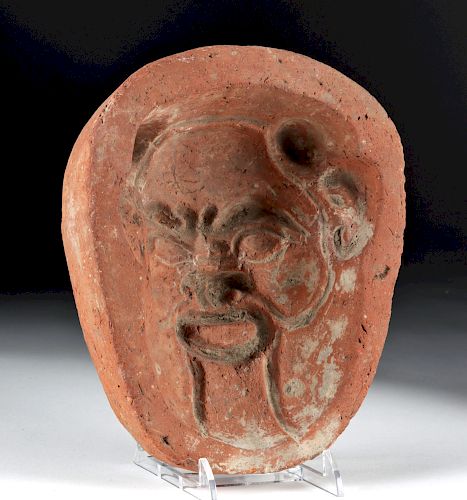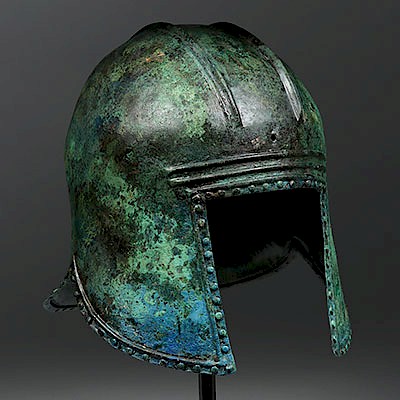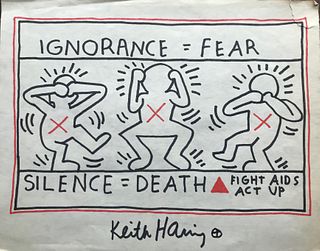Large Egyptian Terracotta Mold of Bes, ex-Bonhams
Lot 63e
About Seller
Artemis Fine Arts
686 S Taylor Ave, Ste 106
Louisville, CO 80027
United States
Selling antiquities, ancient and ethnographic art online since 1993, Artemis Gallery specializes in Classical Antiquities (Egyptian, Greek, Roman, Near Eastern), Asian, Pre-Columbian, African / Tribal / Oceanographic art. Our extensive inventory includes pottery, stone, metal, wood, glass and textil...Read more
Categories
Estimate:
$3,500 - $5,000
Absentee vs Live bid
Two ways to bid:
- Leave a max absentee bid and the platform will bid on your behalf up to your maximum bid during the live auction.
- Bid live during the auction and your bids will be submitted real-time to the auctioneer.
Bid Increments
| Price | Bid Increment |
|---|---|
| $0 | $25 |
| $300 | $50 |
| $1,000 | $100 |
| $2,000 | $250 |
| $5,000 | $500 |
| $10,000 | $1,000 |
| $20,000 | $2,500 |
| $50,000 | $5,000 |
| $100,000 | $10,000 |
| $200,000 | $20,000 |
About Auction
By Artemis Fine Arts
May 10, 2018
Set Reminder
2018-05-10 10:00:00
2018-05-10 10:00:00
America/New_York
Bidsquare
Bidsquare : Fine Ethnographic / Asian / Ancient Art
https://www.bidsquare.com/auctions/artemis-gallery/fine-ethnographic-asian-ancient-art-3213
Featuring antiquities from around the world including Pre-Columbian, Tribal, Classical, Asian, so much more! Artemis Fine Arts info@artemisgallery.com
Featuring antiquities from around the world including Pre-Columbian, Tribal, Classical, Asian, so much more! Artemis Fine Arts info@artemisgallery.com
- Lot Description
Egypt, Roman period, ca. 1st century BCE to 2nd century CE. A sizeable terracotta mold of Bes, the dwarf god who watched over and protected the members of a household - particularly the women and children - with the magical sign "sa." The mold has a flat base, rounded sides, and a rounded triangular appearance. The interior contains a large, deep-sunken relief face of the diminutive deity in a classic characterization, with perky ears, almond-shaped eyes, a broad nose, puffy cheeks, and an outstretched tongue. Artisans would fill molds like this example with soft marl clay, a material that was easier to bake at higher temperatures. The terracotta housing for the molded face was able to withstand far-greater temperatures, thus allowing for repeated use in creating multiple copies. An exceedingly rare example from the later epochs of ancient Egypt! Size: 6.625" W x 8.125" H (16.8 cm x 20.6 cm).
Bes, the bandy-legged leonine dwarf god, was an apotropaic deity, the protector of the home, children, and women in pregnancy and childbirth. In his role as protector of the home he was thought to dispel bad dreams, and by increasing virility in men and fertility in women, he was seen as a symbol of fecundity. When depicted in full form, he is generally depicted nude, wearing a lion's mane, a plumed headdress, and a tail. He is also seen dancing, brandishing a sword, or frightening off evil spirits by playing music. Bes continued to be a popularly depicted protective deity well into the Graeco-Roman Period.
Provenance: private Davis collection, Houston, Texas, USA; ex-Bonhams London Antiquities Auction, May 8, 2013, lot 136; ex-Joseph Klein collection, formed in New York, New York, USA between 1941 and 1980, thence by descent
All items legal to buy/sell under U.S. Statute covering cultural patrimony Code 2600, CHAPTER 14, and are guaranteed to be as described or your money back.
A Certificate of Authenticity will accompany all winning bids.
We ship worldwide and handle all shipping in-house for your convenience.
#132835Surface wear commensurate with age and use, minor nicks to interior details and around peripheries, with some discoloration within mold cavity, otherwise intact and excellent. Remains of old pottery material within mold cavity, and nice earthen deposits throughout.Condition
- Shipping Info
-
All shipping is handled in-house for your convenience. Your invoice from Artemis Gallery will include shipping calculation instructions. If in doubt, please inquire BEFORE bidding for estimated shipping costs for individual items.
-
- Buyer's Premium



 EUR
EUR CAD
CAD AUD
AUD GBP
GBP MXN
MXN HKD
HKD CNY
CNY MYR
MYR SEK
SEK SGD
SGD CHF
CHF THB
THB














